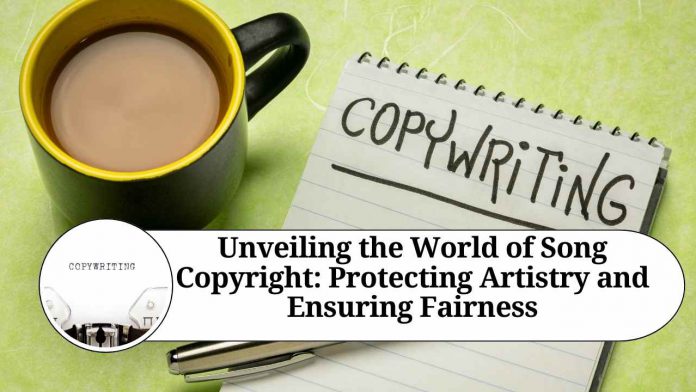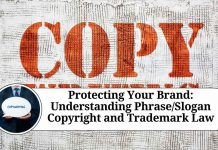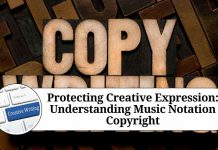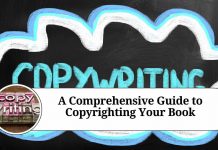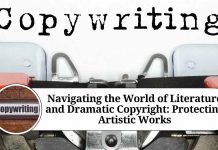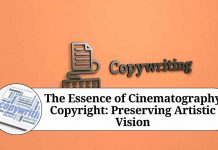Introduction
Music has a powerful ability to touch our souls, evoke emotions, and unite people across cultures and generations. Behind every mesmerizing melody and captivating lyric lies the creative genius of songwriters and musicians who pour their hearts into their craft. Just as any form of intellectual property, songs are protected by copyright, a legal framework that safeguards artistic expression and rewards creators for their work. In this blog, we delve into the fascinating world of song copyright, exploring its importance, key principles, and the challenges it faces in the digital age.
Understanding Copyright: Copyright is an essential concept in the realm of intellectual property, granting exclusive rights to creators over their original works. It allows creators to control the reproduction, distribution, and public performance of their creations, providing them with the opportunity to earn recognition and financial rewards for their efforts. Song copyright specifically protects musical compositions, including the melody, lyrics, and arrangement.
Ownership and Duration: In most countries, copyright ownership of a song is automatically granted to the creator as soon as the song is fixed in a tangible medium, such as a recording or written sheet music. However, registering the copyright with the appropriate copyright office provides additional legal protection and facilitates enforcement in case of infringement.
Copyright protection typically lasts for the life of the creator plus a certain number of years after their death, varying from country to country. In the United States, for example, the duration of copyright for individual creators is generally the creator’s life plus 70 years. After that period, the song enters the public domain, allowing it to be freely used and adapted by anyone.
Rights of Copyright Holders: Copyright confers several exclusive rights to the song’s copyright holder(s). These rights include:
- Reproduction: The right to control the duplication of the song, whether in physical form or digital formats.
- Distribution: The right to control the song’s distribution through various channels, such as streaming platforms, record labels, or physical sales.
- Public Performance: The right to control the public performance of the song, encompassing live performances, radio airplay, and public venues.
- Derivative Works: The right to control the creation of derivative works based on the original song, such as remixes or covers.
Challenges in the Digital Age: The digital age has revolutionized the music industry, offering unprecedented access to songs and enabling instant sharing and distribution. However, it has also presented significant challenges to copyright protection. Online piracy and unauthorized file-sharing have become rampant, resulting in substantial revenue losses for artists and songwriters.
Streaming services, although contributing to the growth of the music industry, often face criticism regarding fair compensation for creators. The complex web of licensing agreements, royalty calculations, and the “value gap” between the revenue generated by platforms and the compensation received by artists are ongoing concerns that require attention and potential reforms.
Balancing Fair Use and Copyright Protection: Fair use is a crucial aspect of copyright law that allows limited use of copyrighted material without explicit permission from the copyright holder. Fair use provisions enable activities such as criticism, commentary, educational purposes, and transformative works. However, determining the boundaries of fair use can be subjective, leading to legal disputes and debates over the interpretation of the law.
Conclusion
Songs, as cherished works of art, deserve protection and respect. Copyright law plays a vital role in preserving the rights of songwriters and musicians, ensuring they are rewarded for their creativity and dedication. As we navigate the ever-evolving digital landscape, it is essential to strike a balance between providing fair use opportunities and safeguarding the integrity of copyrighted works. By doing so, we can foster an environment that nurtures artistic expression, encourages innovation, and ensures a sustainable future for the music industry.
Other Related Blogs: Section 144B Income Tax Act
Frequently Asked Questions (FAQs)
Q. What is song copyright?
Song copyright is a form of intellectual property protection that grants exclusive rights to the creators of original musical compositions. It covers elements such as the melody, lyrics, and arrangement of a song.
Q. How do I copyright my song?
In most countries, copyright protection is automatically granted to the creator as soon as the song is fixed in a tangible medium, such as a recording or written sheet music. However, registering your copyright with the appropriate copyright office provides additional legal protection and evidence of ownership.
Q. How long does song copyright last?
The duration of song copyright varies from country to country. In many cases, copyright protection lasts for the life of the creator plus a certain number of years after their death. For example, in the United States, it is generally the creator’s life plus 70 years.
Q. Can I use a copyrighted song in my own work?
Using a copyrighted song in your work typically requires permission from the copyright holder, unless your use falls under the concept of “fair use.” Fair use allows limited use of copyrighted material for purposes such as criticism, commentary, or educational activities. However, determining fair use can be subjective and depends on factors such as the nature of the use and its impact on the original work.
Q. Can I cover a copyrighted song?
Generally, covering a copyrighted song requires obtaining a mechanical license from the copyright holder or the appropriate licensing agency. Mechanical licenses allow you to reproduce and distribute a recorded version of the song.
Q. Can I sample a copyrighted song in my own composition?
Sampling copyrighted songs without permission is a copyright infringement. If you want to sample a copyrighted song, you typically need to obtain clearance from the copyright holder or the relevant music publisher. This often involves negotiating licensing agreements and paying royalties.
Q. What is the “public domain” in relation to songs?
When a song enters the public domain, it means that its copyright protection has expired, and it can be freely used, adapted, and performed by anyone without seeking permission from the original creator or their estate. The public domain status varies depending on the copyright laws of each country.
Q. What should I do if someone infringes on my song copyright?
If you believe your song copyright has been infringed, it is advisable to consult with an intellectual property lawyer to understand your rights and explore legal remedies. In some cases, sending a cease and desist letter may be sufficient to resolve the issue, while in other cases, litigation may be necessary.

